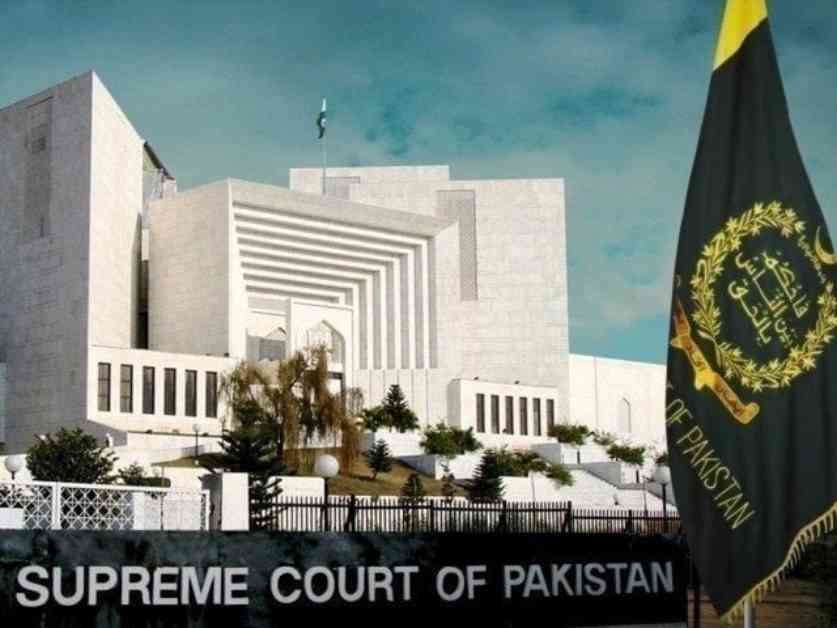Supreme Court Reviews May 9 Events Trial Process, No Clean Chit
The Supreme Court of Pakistan’s Constitutional Bench, led by Justice Aminuddin Khan, delved into the legal and constitutional intricacies surrounding the trials of civilians in military courts related to the May 9 attacks. The hearing aimed to address appeals challenging the military trial process, sparking a debate on the jurisdiction and fairness of such trials.
Concerns Over Jurisdiction and Fairness
During the proceedings, Justice Jamal Mandokhail emphasized that while crimes committed during the May 9 incidents were undeniable, the key issue revolved around the appropriate jurisdiction for conducting the trials. The discussion primarily focused on the 21st Amendment, which laid the groundwork for military courts and raised concerns about the application of the Army Act to civilians.
Justice Musarrat Hilali highlighted the public fear and chaos that ensued during the May 9 events, emphasizing the need for clarity on how trials for crimes like theft and property damage, unrelated to military installations, should be handled. Justice Hasan Azhar Rizvi underscored the severity of the attacks, describing them as targeted assaults against state security, not ordinary protests.
Debate on Constitutional Principles and Fair Trial
Justice Ayesha Malik raised reservations about specific provisions of the Army Act, questioning whether civilians tried under these sections were afforded adequate notice and representation. Justice Muhammad Ali Mazhar delved into the dual jurisdiction of military and civilian courts, seeking clarity on how offences involving both military personnel and civilians are adjudicated.
Amidst the arguments presented by the Defence Ministry, the bench appeared divided on the broader implications of military trials. Justice Mandokhail called for consistency in applying the law, questioning why similar attacks on institutions like Parliament were not tried in military courts. The hearing concluded with the court adjourning proceedings to allow for further deliberations.
Expert Insights and Legal Arguments
Khawaja Haris, counsel for the Defence Ministry, defended the government’s position by asserting that the Army Act and its rules ensure a fair trial process, citing past cases to support the use of military courts. However, the bench sought clarification on how these practices aligned with constitutional principles, especially concerning civilians’ access to appeal mechanisms and their constitutional rights.
The Defence Ministry’s presentation of video evidence depicting armed civilians attacking military sites raised questions about casualties and injuries to military personnel. Justice Hasan Rizvi sought clarity on the evidence provided, emphasizing the need for a thorough examination of the circumstances surrounding the May 9 attacks.
As the Supreme Court continues to review the trial process related to the May 9 events, the complexities of jurisdiction, fairness, and constitutional principles remain at the forefront of the legal discourse. The upcoming sessions promise further insights into the challenges and considerations surrounding the use of military courts for civilian trials, underscoring the need for a balanced and transparent legal framework.









